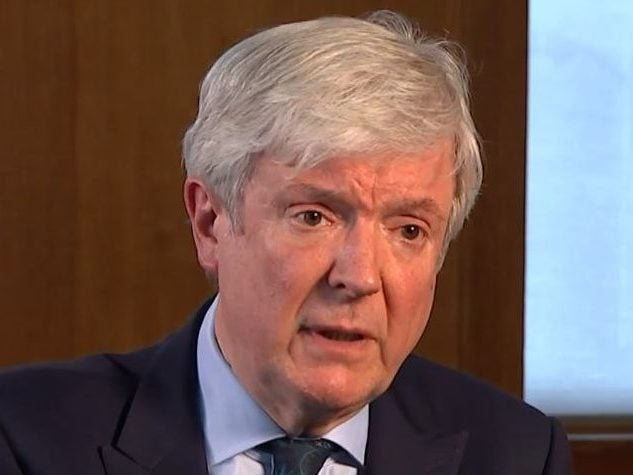
Improving public perception around its news impartiality is one of the BBC’s four priorities for the year ahead, according to its latest annual plan.
Director-general Lord Tony Hall (pictured) said new editorial guidelines, which are currently out for consultation, would offer the BBC a “good chance to focus on this challenge”.
“We regularly track people’s perceptions of BBC impartiality, so we know that – like other organisations – they have weakened in recent years,” he wrote in the plan, which was published today.
“We need to see what we can do to strengthen them, and focus on improving perceptions of impartiality in 2019/20.”
The updated editorial guidelines will renew the BBC’s commitment to impartiality, accuracy and other core values.
The broadcaster will also launch new training resources to “challenge subconscious bias and test how it might creep into anything from a presenter’s tone to a programme’s running order”.
BBC News plans to use its specialists more “front and centre” in news output as it continues to “put analysis at the core of our coverage – not just the ‘what’, but also the ‘why’ and the ‘what next’,” Hall said.
Reality Check, a fact-checking service set up during the EU referendum campaign, will become more visible for users at the heart of the BBC’s daily news output, said Lord Hall, “so we can effectively take on half-truths and misinformation head on, in real time”.
The BBC also revealed it is planning to run a “special conference to explore how, together, we can tackle this issue” with international news organisations this summer. Details are set to be announced in due course.
Hall added: “We will not be able to overcome the challenge of misinformation and bias single-handedly. That is why we are offering to join forces with those who share our values and our commitment to impartiality.”
Audiences will also be asked directly about what impartiality means to them in the era of social media.
Hall said: “Impartiality matters. And it matters even more at a moment when society feels so divided and divisive, so full of misinformation and aggression.
“Making sure all sides of a debate are heard – all different views and voices – is fundamental to our mission. We must stand up for it and defend our role like never before.
“It is essential if we are to continue to be the place people know they can trust to get to grips with what is truly happening in the world and to hear the broadest range of views.”
News aimed at children is also set to get a refresh this year to ensure younger audiences are receiving impartial information “to help them understand and engage with the world around them”, the plan said.
Newsround’s digital offering will be reinvigorated with more focus on impactful journalism and an expansion of its editorial remit to cover more topics “that kids love”, such as gaming and music.
The BBC will therefore ask Ofcom to amend its operating licence “to allow us to best meet younger audiences’ needs in the way they now demand”.
The broadcaster may also request an operating licence change so it can change BBC Asian Network’s news offering to the “effective and popular” Newsbeat format as part of its drive to meet changing audience demand and achieve cost savings.
The BBC’s four core priorities set out in its annual plan are: creativity, growing BBC iPlayer and BBC Sounds, trust and impartiality in news, and making the BBC the best place to work.
The report also defended the BBC’s online news output in the wake of attacks from tabloid bosses who accuse it of threatening their businesses.
The broadcaster said its online news is “increasingly important” for its audiences and revealed that in one week in January which coincided with a key Brexit vote in Parliament, almost 43m UK browsers visited the BBC News website and app.
“Audiences also came to [BBC] News Online in their millions for very different stories: the tragic Leicester City helicopter crash, extreme weather and the birth of Prince Louis,” it said.
As BBC online is evolved over the next year, bosses will “look at the most effective ways to support the wider industry by hosting or signposting to their content”, the report added.
Online users will begin to see more personalised feeds on BBC News and BBC Sport as the corporation aims to have all its visitors signed in to a BBC account by 2021/22.
On radio, the annual plan revealed that the BBC Sounds app has been downloaded about 1.8m times since its launch in October.
Despite criticism over the app’s functionality, the BBC said today that pushing ahead with BBC Sounds is “vital” for the future of radio.
It removed all BBC podcasts from Google earlier this week, while others have been moved exclusively to BBC Sounds.
Picture: Channel 4 News
Email pged@pressgazette.co.uk to point out mistakes, provide story tips or send in a letter for publication on our "Letters Page" blog
